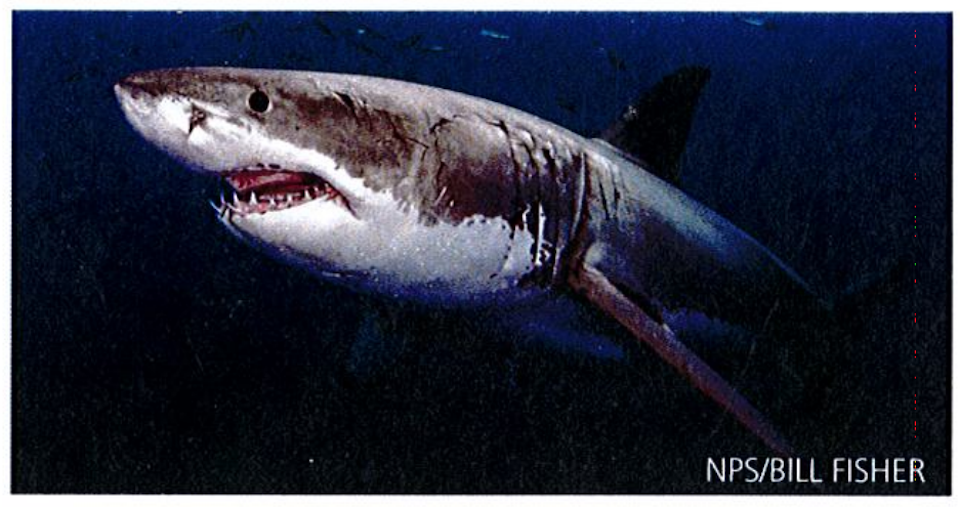
The only sure-fire way to avoid a shark attack is to stay out of the water/NPS, Bill Fisher
After all is said and done, there's no single approach that can be taken at Cape Cod National Seashore to 100 percent prevent a shark attack if you go in the water, according to consultants retained to study 27 suggested alternatives.
The Woods Hole Group, in a nearly 200-page paper, dissected the proposals. They ranged from using spotter planes and drones to physical shark barriers and reducing the population of gray seals that great white sharks feast on.
"The most important finding to emphasize from this preliminary assessment is there is no single alternative or suite of alternatives that can guarantee the safety of 100 percent of individuals who choose to enter the water," the consultants said.
Sharks attacks at the national seashore in Massachusetts have greatly raised the concern of National Park Service staff, seashore communities, and the visiting public. Twice during the summer of 2018 swimmers were attacked, leading to the death of one of them.
Great white sharks rule the waters off Cape Cod during summer and early fall each year. But in recent years they have been drawn closer to shore to feed on gray seals, whose numbers have skyrocketed off Massachusetts since being protected by federal law nearly 50 years ago.
Against that backdrop, the National Park Service has greatly increased its outreach and education messaging to inform beach goers, and frequently closes beaches temporarily to swimming during the summer when sharks are spotted.

The Woods Hole Group examined each of the proposals and scored them from "high" to "low" in terms of likely effectiveness.
"However, because many of these alternatives have not yet been tested or are not currently commercially available, specific documentation related to effectiveless, limitations, and costs were not always available," the consultants said.
Alternatives that scored "high" or "medium high" in terms of likely success included modifying human behavior and electromagnetic deterrents.
The consultants didn't recommend any one alternative, but said it would "be prudent to review the lessons learned from pilot studies and deployments of shark mitigation strategies elsewhere in the world. Dealing with shark-human interaction is a global issue, not one that is isolated to our region," they said.


 Support Essential Coverage of Essential Places
Support Essential Coverage of Essential Places







Comments
Who's kidding who here? Let's get real.
People are swimming in waters in which sharks are swimming.
I'm an engineer .
I cannot imagine anyone createing an " impenetrable barrier " to separate sharks from swimmers and my opinion anyone that thinks they can is foolish.
Personally, I think the money spent on try to identify a way to separate sharks from people was a waste of money.
you should really have an independant study and not one done by the people who are researching sharks by gathering data for science rather than safety A study on shark attacks makes more sense. i mean seriously it's like Trump's cabinet members. you are sending the people out who want to keep the sharks here to do a study on how to keep them away! DUH!
What happened to 'don't go in the water'?
Reducing the gray seal population will only have the sharks turn even more towards human seeing there has also been an enormous increase in the great white population as well
Take a leaf out of Australia's book at put up drum lines. Humans are more important than sharks. And there is no danger of sharks becoming extinct.
Hi. Could culling the seal population force the sharks to look harder for food and in turn, more attacks on humans?
White shark's are apex predators who mainly prefer seals but if a human goes into the area where sharks feed on seals, they may die from a large shark attack. Surfing, spear fishing, snorkeling, scuba diving have all been on the record as activities that humans have been doing when a predation occurs. Yes, swimming is also on the list. So, I am in agreement with those who have stayed that you enter the water at your own risk. Here's my advice to all the Cape Cod citizens who believe they should be able to purchase a shark free zone. White shark's don't take cash, American Express Gold or Platinum, your life is worth the same as a homeless person to a white shark, or any shark for that matter. Build a pool and leave the shark's alone.
branchstacker @gmail.com
I have studded a drone to drop a solution in front of the shark and it will disappear..I nee6 funding to prove this if an organization wants to join me it will save lives .just email me BARRY WINCHESTER BRISBANE AUSTRALIA